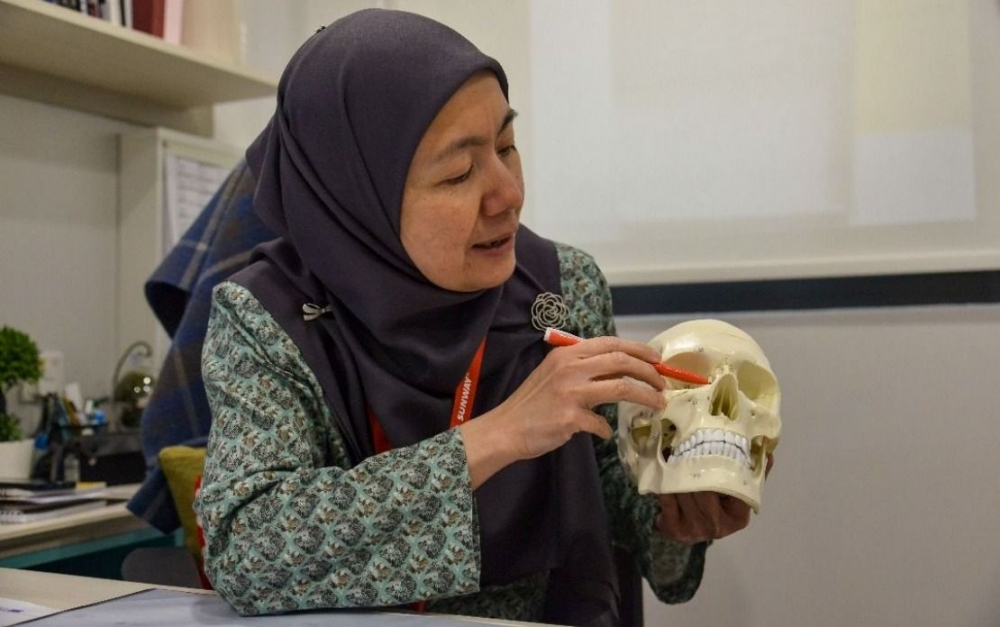Something’s Not Right: How to Recognise When Your Teen is Struggling — And Step In Before It’s Too Late

In today’s fast-paced, high-pressure world, being a teenager is harder than ever.
While adults may look back on their teen years as carefree, the reality for many young people today is very different. Behind the smiles, selfies, and schoolbooks, some teens are silently battling overwhelming emotions — stress, sadness, anxiety, self-doubt — and they often feel like no one sees it.
This article is for the parents, teachers, caregivers, and adults who care. It’s a reminder that we can’t wait until it’s “really serious” to care about teen mental health. Sometimes, by the time we notice the warning signs, a child has already been struggling for too long.
Let’s understand more — with insights from Consultant Psychiatrist Dr. Ryan, who shares how we can better recognise, respond to, and support teenagers before things reach a crisis point.

Teen Stress Is Real — And It's Growing
Teenagers today aren’t just stressed — many are exhausted, emotionally drained, and feeling stuck.
They’re juggling academic pressure (“Will I get good grades?”), friendship drama (“Why am I being left out?”), social media comparisons (“Why is everyone else so perfect?”), and questions about their future (“What if I fail?”). Some are dealing with bullying. Others feel like they don’t fit in. And many are quietly wondering if they’re “enough.”
They might not say it out loud — but the stress shows up in other ways:
- They withdraw and stop talking.
- They sleep too much… or not at all.
- They snap over small things.
- They lose interest in everything.
- They say things like, “I’m just tired all the time” or “I don’t care anymore.”
These aren’t just mood swings. They could be signs of emotional overload — and if left unchecked, they can spiral into depression, self-harm, or suicidal thoughts.
Why Teens Struggle in Silence
Unlike adults, teenagers often don’t have the words to explain what they’re feeling. They may not even fully understand it themselves. Instead of saying “I feel anxious,” a teen might say “I don’t want to go to school.” Instead of saying “I feel worthless,” they might become angry, rebellious, or distant.
And sadly, many teens don’t ask for help because:
- They’re afraid of being judged or misunderstood.
- They think they’ll get into trouble or be seen as weak.
- They don’t want to “burden” anyone.
- They believe nobody would understand anyway.
That’s why we — the adults — have to pay attention. Because our teens may not tell us when they’re in pain… but they hope someone will notice.
What You Can Do (Before It Becomes a Crisis)
You don’t need to be a mental health expert to support your teen. But you do need to be present, curious, and willing to listen without judgement.
Here’s how to start:
1. Notice the Small Changes
Look for shifts in mood, habits, or personality. Are they withdrawing from people they love? Eating less? Sleeping more? Losing interest in hobbies? Becoming more easily upset?
Any change that lasts more than a few weeks is worth a gentle check-in.
2. Create a Safe Space to Talk
Don’t wait for them to come to you. Create small, consistent opportunities to connect — even during everyday moments like car rides or dinner. You could say:
“You’ve seemed a little off lately. I’m not here to judge, I just want to understand what’s going on for you.”
3. Listen Without Rushing to Fix
Sometimes the best response is no response — just listen. Don’t interrupt. Don’t lecture. Don’t minimise. Phrases like:
“That sounds really tough.”
“I’m glad you told me.”
“You’re not alone in this.”
…go a long way in helping teens feel seen and supported.
4. Avoid “Tough Love” or Dismissive Comments
Phrases like “You’re just being dramatic,” “Back in my day…” or “You have nothing to be sad about” can shut down your teen completely.
Instead, focus on empathy and validation: “I may not understand everything, but I believe you.”
When to Seek Help
If your teen:
- Talks about not wanting to be alive
- Shows signs of self-harm (cuts, burns, bruises with no clear explanation)
- Has withdrawn from everything they used to enjoy
- Is constantly exhausted, sad, or angry
- Seems disconnected or hopeless
Do not wait. Get help.
Reach out to a mental health professional, school counsellor, or your family doctor. There is no shame in seeking therapy — and the earlier, the better.
If you’re ever unsure, trust your instincts. It’s better to overreact than to regret not acting at all.
You Can’t Always Prevent Struggles — But You Can Prevent Silence
Your teen may not always be okay. That’s part of life. But what makes the biggest difference is knowing they don’t have to go through it alone.
Start today. Ask how they’re really doing. Keep asking. Stay close.
Because behind every teen is a heart that’s still learning how to feel, how to cope, and how to be human in a complicated world.
And sometimes, all it takes to save a life is one adult who noticed, who asked, and who didn’t walk away.
Don't Wait Until It's Too Late — Talk to Us Today
If you're unsure where to begin or simply feel overwhelmed, you're not alone — and you don’t have to face this journey by yourself.
At Sunway Medical Centre Velocity, our team is here to support you and your teen every step of the way. Our Consultant Psychiatrist, Dr. Ryan, offers confidential consultations for teens and adolescents experiencing emotional or mental health difficulties.
Whether it’s early signs of anxiety, mood changes, or more serious concerns, seeking help early can make a big difference in your child’s recovery and resilience.
这篇文章对您有帮助吗?
有0 位用户在 0 位中觉得这很有帮助。
Suggest to Read









